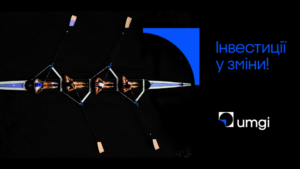
SCM Group’s investment company umgi (formerly UMG Investments) has invested almost $22 mln in the development of the group’s businesses in 2022-2023.
According to Wednesday’s press release, last year umgi continued to implement its strategy of entering European markets by investing in the growth of its assets.
It is specified that umgi’s portfolio of industrial products has expanded due to the opening of a new powdered wire production plant of Inwire Group in Izmit (Turkey), which is one of the largest producers of components for the metallurgical industry in Ukraine. The construction and launch of the facility took two years. The products of the new production facility are oriented to cover the needs of the local market of Turkey and other Middle East countries and will contribute to strengthening the position of the manufacturer in the global market.
The total investment in the project amounted to $2.4 million from 2022. umgi has also strengthened its upstream portfolio by opening new production facilities of VESCO Group in Spain.
“umgi aims to build a portfolio with a market value of $1 billion by applying our expertise in global markets as well as engaging international partners in Ukraine’s recovery. Our investment team is constantly exploring new business opportunities and developing a network of partners in the Ukrainian, EU, Turkish and Indian markets. We aim to strengthen our portfolio with new industrial and healthcare businesses both in Ukraine and abroad, closing one or two agreements per year,” said Andriy Gorokhov, CEO of umgi.
The press release notes that umgi systematically supports the economy of Ukraine The total amount of taxes paid by businesses under the company’s management for 2023 amounted to more than 321 million UAH. Also, to support the AFU, TROs and communities in places where umgi businesses are present, 6 million UAH was allocated and goods and services for 2 million UAH were provided. Special equipment for the construction of fortifications, personal protective equipment, technical means, fuel and other necessary things are transferred to the defenders, assistance is provided in the construction of fortifications, provision of construction materials, etc.
The total umgi losses from the war for 2023, according to internal estimates, amount to about $20 million. In particular, the Chasovoyarsk refractory plant, which is part of VESCO Group, is in an active combat zone.
“Despite the significant losses suffered by our assets due to Russia’s full-scale invasion, Ukrainian business demonstrates resilience and is quickly adapting to new conditions. We see signs of renewal in the processing, construction and logistics industries. Feednova has fully met its budget despite martial law and border blockades. Moreover, a decision has been made to scale the business in Central Ukraine. Recycling Solutions completed the relocation of its microsphere recycling production to Western Ukraine and became one of the largest importers of granulated slag in the EU. Intech and PortInvest increased cargo volumes compared to 2022,” Gorokhov added.
In 2023, umgi opened an official representative office in Warsaw, Poland. The office is responsible for coordinating the company’s foreign investments and facilitates umgi’s assets in finding opportunities in the EU.
As reported, VESCO group, which combines the clay mining business of the investment company umgi, generated $75.2 million in gross revenue in 2023. In 2024, Vesco group plans to double its sales volume. At the same time, it is actively working on strategic business expansion in Europe, which it started working on back in 2019, as the main markets for VESCO clays are Italy, Spain, Ukraine, Turkey and Poland. In 2023, through VESCO CLAYS SPAIN, the group started extracting clay from the Encarnita deposit quarry in Spain.
In addition, in 2024, mining operations will be launched at VESCO Group enterprises in Ukraine. The planned volume is up to 500 thousand tons, which is more than six times less than in the pre-war period, but it is enough to restore the flexibility of the product portfolio and offer customers ceramic raw materials tailored to their individual needs, taking into account the stocks.
umgi is an investment company with a focus on developing businesses in the raw materials and processing sectors. It was founded in 2006 by SCM Group. Investment focus: mining; by-product and waste management; production of industrial goods and services. The total value of UMG portfolio companies is estimated at more than $500 mln.
Source: Interfax-Ukraine

Today, representatives of the Czech company SEFOR Solutions visited the Mobile Rescue Center of the State Emergency Service of Ukraine to hand over the new pTRACK system.
First, the Czech partners made a presentation of the system, demonstrating its key features and benefits. After the theoretical part, the rescuers were able to see the system in action: the team of emergency workers put on trackers and went on a mock search operation. All those present could watch the tracking system on the screen, evaluating its benefits for the rescue operation.
The pTRACK system offers a number of innovative solutions: tracking the movement of teams, storing the history of the position of objects in a mapping application, prompt decision-making and coordination of search and rescue operations. It provides clear data on search areas and two-way transmission of warning signals between the post and the search team.
Importantly, the system can relay connections between unit leaders and subordinates in difficult terrain conditions, saving all data to a USB flash drive in case of connection loss.
“This system will help us significantly increase the efficiency of our search and rescue operations, as it is designed to operate in any, even the most difficult, working conditions. We are grateful to our Czech friends for their support and such important technical assistance,” said Yuriy Tsykenyuk, First Deputy Head of the MRC of the SES of Ukraine.
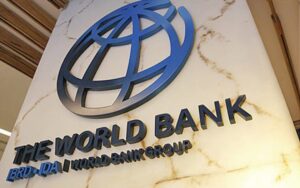
The World Bank Group’s IFC plans to mobilize about $345 million to build a new 350 MW wind power capacity in Ukraine, the corporation said on its website on Wednesday.
The report said the initiative was presented among other initiatives aimed at supporting Ukraine at the URC-2024 recovery conference in Berlin.
Now these projects, which are planned to be implemented in order to improve energy security and support further development of renewable energy in Ukraine, are undergoing due diligence and awaiting approval by the IFC management and Board of Directors, the corporation specified.
As reported, at URC-2024, Knud Rissel, commercial director of the German company Notus Energy, said that it is engaged in the implementation of a 300 MW WPP project in the Odessa region, the first phase of which will be 120 MW.
“We already have all the permits, in particular those related to land. Banks are supporting us, although they are taking a risk by supporting us. But we are all ready to work even under martial law,” he said.
According to Rissel, the company also signed some agreements on the project realization at this conference.
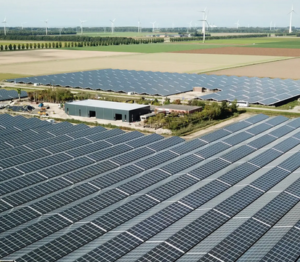
German company GOLDBECK SOLAR Investment and the European Bank for Reconstruction and Development (EBRD) are setting up a joint venture, GOLDBECK SOLAR Investment Ukraine, to implement 500MW solar power plant projects in Ukraine over the next three to five years.
“The aim of the new company is to develop, finance, construct and operate solar power projects to thereby support Ukraine’s energy independence and sustainability,” the company said in a press release on its website on Wednesday at the end of URC-2024 in Berlin.
GOLDBECK SOLAR Investment will receive a EUR5 million loan from DEG (Deutsche Investitions-und Entwicklungsgesellschaft) for its commitment in Ukraine through the ImpactConnect program initiated and financed by the German Federal Ministry for Economic Cooperation and Development (BMZ). Planning for the construction of the first solar park is due to start in the fall of 2024.
As noted, this is the EBRD’s first equity agreement in Ukraine’s energy sector since the full-scale Russian invasion. The document emphasizes the economic viability of the investment scenario and the continued role of GOLDBECK SOLAR as a reliable partner of the bank after previous debt financing transactions in Poland and Kazakhstan.
The EBRD, for its part, notes in a press release that the JV agreement will strengthen its relationship with GOLDBECK SOLAR Group, which it characterizes as an experienced German solar company with more than 20 years of experience. According to him, GOLDBECK SOLAR Group currently employs more than 550 people and has built more than 3 GW of solar capacity in 20 countries.
“This will be the group’s first investment and activity in Ukraine, which is also an important benchmark to stimulate foreign direct investment in its energy sector, especially with a focus on refurbishment and green transition,” the EBRD notes.
According to Joachim Goldbeck, CEO of GOLDBECK SOLAR Group, quoted on the company’s website, the group is aware of the risks posed by the current political situation, but recognizes: the future of Europe is linked to the future of Ukraine, “so we need to set an example today.”
“With our expertise and EBRD resources, we can make significant progress in the renewable energy sector. We see great potential in Ukraine and are confident that our actions will make a sustainable contribution to the country’s energy supply and encourage other companies to follow our path,” emphasized Olga Kovalchuk, Managing Director of the newly established GOLDBECK SOLAR Investment Ukraine.
According to Arvid Turkner, EBRD Managing Director for Ukraine and Moldova, the Bank welcomes this project, which has made it possible to attract key cross-border investments in Ukraine.
Grzegorz Zielinski, Director for Energy in Europe at the EBRD, in turn, expressed hope that the bank’s comprehensive approach to Ukraine’s energy sector at both public and private levels will catalyze further investment in the sector.
It is reported that in the framework of the URC Joachim Goldbeck and Deputy Minister of Energy of Ukraine Svetlana Grinchuk signed a memorandum of understanding with a joint commitment to cooperate in several areas and activities to promote private investment in the renewable energy sector of Ukraine.
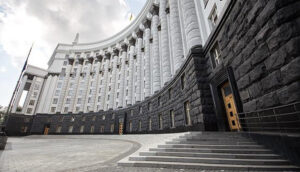
The Cabinet of Ministers of Ukraine tentatively in early July this year may approve the Strategy for Recovery of Small and Medium Entrepreneurship (SME) until 2027, Deputy Economy Minister Oleksiy Sobolev said.
“About three weeks are left before it (the Strategy – IF-U) will be approved. Consultations are going on now. We have implemented a lot of wishes (of international partners – IF-U) into the Strategy, and SME recovery is not just a government effort – it is a joint effort. We can create one document for everyone with a list of priorities, ideas for coordination, and the next phase is to create an alliance of SMEs from different countries to implement the strategy. And one of the tools is the EDF (Entrepreneurship Development Fund),” he said on the sidelines of the Ukraine Recovery Conference (URC2024) in Berlin on Wednesday.
The Deputy Minister of Economy noted that about 100 measures are planned within the framework of the Strategy implementation, which include tools such as business grants, tools of training programs, search for partners for enterprises, risk insurance.
“EUR8 billion of financing is planned for the next years, and this is realistic – if you look at the programs of partners in the SME Alliance, it is almost the same level,” Sobolev said.
He reminded that as a result of the Strategy’s implementation, the share of SMEs in total value added will increase to 75% by 2027 (from 70% in 2020), and “many new microbusinesses (with more than two employees) will be created.”
When asked what international assistance Ukraine needs first of all to implement the Strategy, Sobolev said that first of all access to financing is needed, as well as technical assistance.
“Some of the measures are innovative for us, some require additional resources and, of course, we need coordination with partners,” the Deputy Minister emphasized.
As reported, the SME Recovery Strategy until 2027 provides for the improvement of state policy in the field of SME development and support by creating conditions for sustainable development and digital transformation, facilitating access to finance, supporting the growth of SMEs in domestic and foreign markets.
The draft Strategy includes three strategic directions – recovery, ease of doing business and access to markets; digital transformation and entrepreneurial ecosystem; and access to resources, integration and competitiveness.
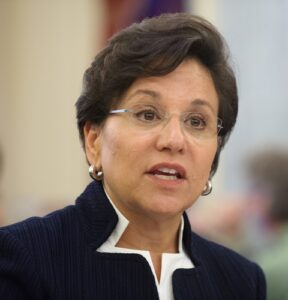
The challenges of the Ukrainian economy are related to the lack of insurance and it is already obvious that this hinders the attraction of investors, who first of all think about the protection of their capital.
This opinion was expressed by the US Special Representative for Ukraine’s Economic Recovery Penny Pritzker at the Ukraine Recovery Conference (URC2024) in Berlin on Wednesday.
“We all understand: in order for private investors to come in, insurance is needed. This is the first thing an investor thinks about,” she said.
According to Pritzker, she and her team took this as a call to action It was seconded by the US-based Development Finance Corporation (DFC) and global reinsurance broker Aon, which found practical innovative solutions to the issue. DFC already provides an insurance product designed for SMEs.
“We have purposely built an insurance model that is scalable. However, for this sector to flourish in Ukraine, many players are needed. I will encourage other insurance organizations, international institutions to think how they can join this model. I am confident: this mechanism will bring to Ukraine the necessary capital for its economic growth both when there is a war and when there is peace and reconstruction begins,” she emphasized.
According to DFC Executive Director Scott Nathan, before the war the corporation had a large portfolio in Ukraine, including risk insurance. Currently, to support the private sector and the country’s economy, one of the important toolkits in its portfolio is political risk insurance, which has closed $350 million worth of arrangements for three contracts in agriculture, manufacturing and education over the past year.
“Together with our partner ARCS, we as DFC can provide $50 million in war risk insurance, air raid risk, etc. to different clients. These can be small policies that can go to larger policies,” he noted.
At the same time, Nathan said that projects are being developed with Aon that can be scaled. One such project will be announced soon.
“Practically, we are helping local insurance companies build capacity for the country. Insurance is a mechanism to mobilize capital in the country and we hope to offer such an innovative tool. This is just the beginning, just part of our joint efforts to invest in Ukraine’s future, to lay the foundation for future investments when its recovery and reconstruction begins. It is important for the economy to work every day already now, during the war, and for this we need to build capacity in the insurance market. This is the key to success,” he said.
According to Aon President Erik Andersen, it is very important to provide protection by Ukrainian insurance companies, as well as to have a mechanism of pooled resources to provide insurance in the health care system, for small businesses, etc.,” he said.
“What we are saying is that we wanted to participate and invest our capital through the DFC, through local insurers. We have been working in Ukraine for a long time, it’s a big insurance program, and we want this capital to go to companies that operate in the country,” he said.